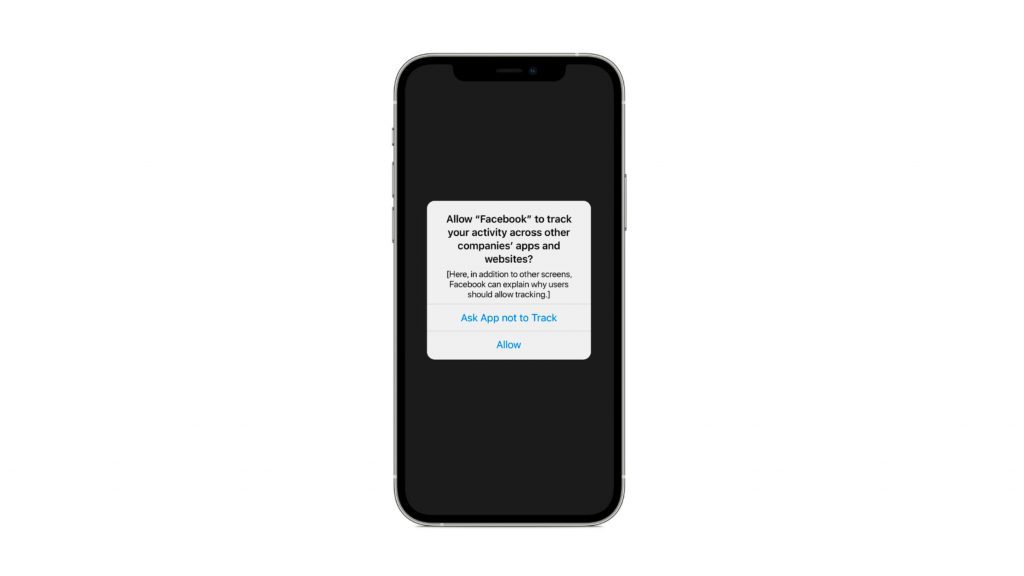Learn how updating iOS 14 will affect your Facebook Ads campaigns and what actions you need to take now! The world of digital media experienced an unprecedented earthquake in early 2021 with the announcement of the launch of Apple’s Tracking Transparency App , giving iPhone users the choice of whether or not to be tracked during their online activity. If Apple’s ad is a real earthquake, it’s for a simple reason: it completely rebalances the cards when it comes to online advertising.
Since 2015, the personalization of ads was made possible thanks to the combination of Facebook and IBM. This combination of the two giants had propelled Facebook as one of the most powerful advertising platforms with its billions of users and a new type of 2-way communication (previously push). It was the beginning of personalized advertising. Both marketers and users were expected to win. Several scientific studies have shown that:
- For advertisers : this allowed them to spend less and better, through better prospect targeting
- For users : Ad personalization matched their interests to their needs, making advertising less intrusive and more engaging.
So iOS14, why is it scary at first?
First, because Facebook themselves were panicked and had to react urgently to the news of Apple which surprised many by its very tight timing. Facebook, like the rest of the digital world does not really have their words to say in this strategic change made by the brand to apple. They suffer like you and me, advertisers, the good will of Apple and have no way of opposing this new measure.
 For Facebook, the stakes are relatively simple. They can no longer track users as well across platforms, which has a direct impact on the data collected… especially for their advertisers. As tracking is less efficient, some data/sales/leads will no longer be available in Facebook’s Business Manager. As a result, campaign results are more likely to perform less.
For Facebook, the stakes are relatively simple. They can no longer track users as well across platforms, which has a direct impact on the data collected… especially for their advertisers. As tracking is less efficient, some data/sales/leads will no longer be available in Facebook’s Business Manager. As a result, campaign results are more likely to perform less.
A drop in performance could lead to a decrease in advertising spending for some advertisers, which is very very annoying for Facebook since it rhymes with less revenue for Mark Zukenberg’s application group, which monetizes all of its platforms (Facebook, Instagram, Messenger, Whatsapp) via its advertising system.
(NOT SO) FUN FACT: Although a study shows that 90% of people are in favor of personalized ads in principle, the percentage of iOS 14 users accepting tracking in the first two weeks of large-scale deployment is not really encouraging: we are talking about an “Opt-In” of only 13% worldwide.
But why did Apple launch its Tracking Transparency App ?
It is actually a very legitimate question. If we take a closer look, we realize that Apple does not work like Facebook, Google and all the other platforms whose business model is often, if not only, based on their advertising system.
In fact, Apple’s reason is rather simple, they want to leave the choice to their users whether or not to be tracked in a digital ecosystem that did not give them / no longer really the choice since the advent of Web 2.0.
On Data Protection Day on January 28, 2021, Craig Federighi, Apple’s senior vice president of software engineering, said, “Privacy means peace of mind, it means security, and it means you’re in control of your own data.”
While Apple’s announcement may seem legitimate to consumers, it poses a major challenge in the digital ecosystem for four reasons:
- App Tracking Transparency does not apply to Apple.
- The announcement of the introduction of iOS 14, was very sudden and has damaged an entire industry in unprecedented ways.
- This will result in disadvantage to smaller advertisers who will have extremely limited audiences for retargeting.
- Since it will no longer be possible to track users’ activity via cookies, this will certainly favor the biggest players (Apple, Facebook, etc.). who have huge databases about their users.

Opt-In VS. Opt-Out: the major differences of iOS 14 for your Facebook Ads
Opt-In
The “Opt-in” corresponds to all iOS 14 users, or Iphone (this is not [encore] available for Macs) who choose to be deliberately tracked on the applications they visit.
They therefore continue to benefit from personalized advertisements, through the retargeting of the sites they visit for example, as well as in relation to their interests via their Internet browsing.
They are tracked in Facebook’s Business Manager campaigns according to the 7-day click-and-day-view allocation system, the default system now applicable to all types of devices (computer, tablet, phone) and operating system (android, iOS, etc.).
Opt-Out
For people who have chosen “Opt-out”, the situation is different.
First, they no longer appear in retargeting and/or exclusion hearing hearings. In other words, if you’re running a cold acquisition campaign with the goal of selling products, the iOS 14 user with “Opt-Out” will no longer be included in your retargeting ads, or in your buyers exclusion audience, if they make a purchase, for example. This means that it will be offered the same advertisements over and over again, regardless of its position in your sales tunnel.

In terms of statistics, in the Facebook ad manager, it is now only possible to track the activity of these users for one day click and no longer 7 days click and 1 day view.
Also, a single conversion event can now be awarded (purchase, addition to the basket, prospect, etc.). It is therefore essential to rank your 8 priority conversion events so that Facebook keeps only the one that is most important to you and your acquisition strategy on Facebook.
Don’t panic! I’ll explain how to choose your 8 priority events in your Business Manager in the paragraph below.
Last but not least, the rise of the statistics in the Facebook manager will no longer happen instantly. A purchase made on your website on Monday, via your advertisements, may not be made in your Business Manager until Tuesday or even Wednesday.
What actions should you take now?
1. Check your domain with Facebook
In order to set up your 8 priority conversion events, you’ll need to check your domain with Facebook first. To do this, go to your Business Manager and the “Business Settings” section (1). In the tabs on the left, click on “Brand Safety” and then on “Domains” (2).“Your domain name will appear. Otherwise, add it via the top box and click “Add” (3).” Facebook will then give you a meta-beacon to insert on your site to allow it to check your domain. There are 3 ways to do it, choose one (4) and follow the explanations of Facebook.

2. Rank your 8 conversion events in order of importance
As discussed above, it is essential to prioritize the events you want Facebook to track as a priority for you in order to be able to track down the priority event of iPhone users who have “Opt-Out”. By default, Facebook can assign you these events itself, but only you know which ones you want to track first. For an e-commerce, for example, we can assume that the number one priority will be to track purchases, then additions to the cart, etc.
Again, go back to Business Manager and then go to “Data Sources” (1).” Then select your “Pixel” (2) and then go to “Overview” (3) and “Aggregated Event Measurement Tool” (4).” You will see a button for “Configure web events” (5). Click on it, then click on “Manage Events” (6) in the new page that appears. Then you will be able to view the events with the highest priority (7) in your BM. You can configure up to eight (8) of them. Don’t forget to validate (9) the ranking of your conversion events. Beware, once done, you will not be able to change the configuration of your conversion events for 72 hours.



Finally…
As you will have understood, not only facebook has been undermined in this story, but an entire ecosystem that has been working on gains for years. As required by the constant changes in digital technology, I am confident that they will find long-term solutions to fill this new reality.



